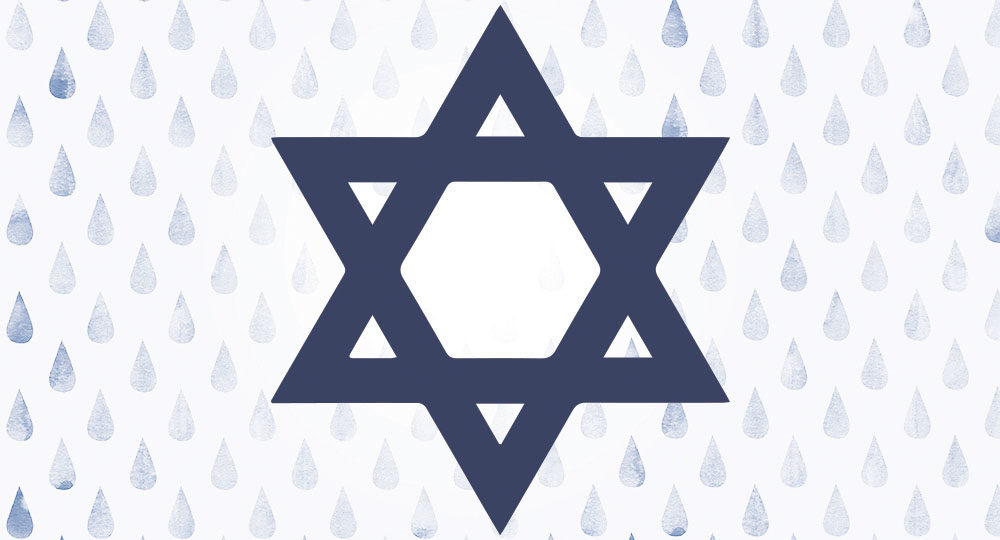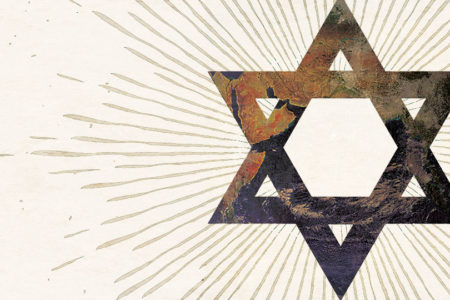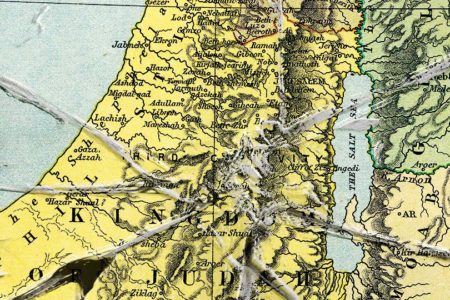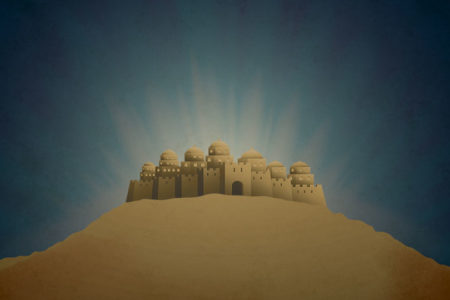Waiting For Deliverance Micah 6—7
God “sends rain on the just and on the unjust” (Mt. 5:45). Yet He preserves the just through judgment.
It’s election year in America, and again many are hoping for new leadership to restore the glory of our country. We think if only we get the right leaders into positions of influence, then perhaps we can adjust the direction of our ship. Micah’s prophetic message to Judah more than 27 centuries ago warns us otherwise.
A contemporary of Isaiah, Micah was concerned about both of the Jewish kingdoms but focused mainly on the southern kingdom of Judah. He saw the total and obvious abandonment of Yahweh’s Law and worship in the north, yet he spoke to the less obvious—but equally sinful—abandonment in the south.
Micah’s first sermon (chaps. 1—2) proclaims that the judgment of the ungodly (Israel) affects the godly (Judah). Like an infectious virus, the sin of the northern kingdom spread to the southern kingdom. Idolatry, immorality, and injustice had pervaded Judah.
Micah’s second sermon (chaps. 3—5) proclaims that judgment is coming. Though God has promised ultimately to deliver and exalt Israel through its Messiah, this promise does not prevent intermediate punishment. Micah warned the Judeans their corrupt leaders would bring devastating judgment. Yet He also reminded them of God’s promise to bring a perfect leader—the Messiah—to shepherd His flock:
And He shall stand and feed His flock in the strength of the LORD, in the majesty of the name of the LORD His God; and they shall abide, for now He shall be great to the ends of the earth (5:4).
God “sends rain on the just and on the unjust” (Mt. 5:45). Yet He preserves the just through judgment. Micah’s third sermon (chaps. 6—7) emphasizes God’s preservation of a godly remnant through judgment, not from it. Micah warned the Judeans that even the leadership of their godly king, Hezekiah, could not protect them from God’s wrath against their sin. This principle should concern all nations. Leadership can only do so much. The general population must do the rest and turn to God.
Micah’s third sermon consists of two main points:
- Devastating judgment will affect Judah, in addition to Israel (chap. 6).
- Even in the midst of judgment, God, in His loyal love, consoles the Jewish people with His promise of ultimate, future deliverance and exaltation (chap. 7).
Devastating Judgment
Like a district attorney in a courtroom, Micah presented God’s indictment:
Hear now what the LORD says: “Arise, plead your case before the mountains, and let the hills hear your voice. Hear, O you mountains, the LORD’s complaint, and you strong foundations of the earth; for the LORD has a complaint against His people, and He will contend with Israel” (6:1–2).
The Lord reminded Judah He had sent Moses, Aaron, and Miriam to redeem them from Egyptian bondage. He also protected them from the evil counsel of Balak and Balaam. Therefore, they should have been loyal to Him. Instead, they abandoned Him. Micah told them God was not impressed with their sacrifices and so-called worship because of their evil and hypocritical behavior. Micah’s charge of hypocrisy sounds akin to the charge of his contemporary, the prophet Isaiah:
Hear the word of the LORD, you rulers of Sodom; give ear to the law of our God, you people of Gomorrah: “To what purpose is the multitude of your sacrifices to Me?” says the LORD. “I have had enough of burnt offerings of rams and the fat of fed cattle. I do not delight in the blood of bulls, or of lambs or goats. When you come to appear before Me, who has required this from your hand, to trample My courts? Bring no more futile sacrifices; incense is an abomination to Me. The New Moons, the Sabbaths, and the calling of assemblies—I cannot endure iniquity and the sacred meeting. Your New Moons and your appointed feasts My soul hates; they are a trouble to Me, I am weary of bearing them. When you spread out your hands, I will hide My eyes from you; even though you make many prayers, I will not hear. Your hands are full of blood. Wash yourselves, make yourselves clean; put away the evil of your doings from before My eyes. Cease to do evil, learn to do good; seek justice, rebuke the oppressor; defend the fatherless, plead for the widow” (Isa. 1:10–17).
THE PROPHET ISAIAH
Get to know Isaiah’s writing deeper than ever before in The Prophet Isaiah by Victor Buksbazen.
Like Isaiah, Micah described the humble, righteous behavior that the LORD requires: “He has shown you, O man, what is good; and what does the LORD require of you but to do justly, to love mercy, and to walk humbly with your God” (Mic. 6:8). This message likely fell on deaf ears, just as it does in much of the world today. Like ancient Judah, contemporary culture largely rejects humility and mercy.
Micah contrasted the description of the LORD’s requirements with Judah’s wickedness:
For her rich men are full of violence, her inhabitants have spoken lies, and their tongue is deceitful in their mouth. Therefore I will also make you sick by striking you, by making you desolate because of your sins. You shall eat, but not be satisfied; hunger shall be in your midst. You may carry some away, but shall not save them; and what you do rescue I will give over to the sword. You shall sow, but not reap; you shall tread the olives, but not anoint yourselves with oil; and make sweet wine, but not drink wine (vv. 12–15).
The prophet also pointed out that Judah’s sinful behavior originated from copying the practices of the northern kingdom of Israel: “For the statutes of Omri are kept; all the works of Ahab’s house are done; and you walk in their counsels, that I may make you a desolation, and your inhabitants a hissing. Therefore you shall bear the reproach of My people” (v. 16).
Preservation of the Righteous
Micah compared looking for a righteous man in Judah to gleaning in a place with no grapes:
Woe is me! For I am like those who gather summer fruits, like those who glean vintage grapes; there is no cluster to eat of the first-ripe fruit which my soul desires. The faithful man has perished from the earth, and there is no one upright among men. They all lie in wait for blood; every man hunts his brother with a net. That they may successfully do evil with both hands—the prince asks for gifts, the judge seeks a bribe, and the great man utters his evil desire; so they scheme together (7:1–3).
Every person Micah encountered was looking out for himself, searching for a bribe, or plotting with others. People in Judah could not trust anyone— neighbor, friend, family member, or even one’s own spouse. This is the sad state of affairs that walking away from God’s ways produces. America, like many other Western countries today, is heading down the same tragic path—embracing a society without God. Micah bemoaned such heathenism.
But Micah put his trust in the Lord: “Therefore I will look to the LORD; I will wait for the God of my salvation; my God will hear me. Do not rejoice over me, my enemy; when I fall, I will arise; when I sit in darkness, the LORD will be a light to me” (vv. 7–8). Having confessed his own sin to God, Micah determined to let God deliver him. He acknowledged he and those around him would experience God’s wrath, and he resolved to wait for God’s future deliverance of Israel.
Micah then asked the Lord to shepherd His people and restore them from all over the earth with the miracles He used when He brought them out of Egypt. In that day, he prophesied,
The nations shall see and be ashamed of all their might; they shall put their hand over their mouth; their ears shall be deaf. They shall lick the dust like a serpent; they shall crawl from their holes like snakes of the earth. They shall be afraid of the LORD our God, and shall fear because of You (vv. 16–17).
His message reaches its crescendo with his affirmation of God’s great and loyal love:
Who is a God like You, pardoning iniquity and passing over the transgression of the remnant of His heritage? He does not retain His anger forever, because He delights in mercy. He will again have compassion on us, and will subdue our iniquities. You will cast all our sins into the depths of the sea. You will give truth to Jacob and mercy to Abraham, which You have sworn to our fathers from days of old (vv. 18–20).
God’s promise of ultimate deliverance and exaltation does not preclude the possibility of judgment in the interim. Micah’s main point in this sermon was that pervasive sin brings punishment, which sometimes affects the righteous. Judah would suffer God’s chastening through the Assyrian invasion; and even those who were righteous, like Micah, would suffer.
And more than 100 years later, Judah experienced the same devastation as Israel because of sin; and many righteous men—including Daniel, Hananiah, Azariah, Mishael, and Jeremiah—suffered.
A day is coming when God’s judgment of the nations will also bring suffering for the godly. During the Great Tribulation, many righteous souls will die (Rev. 6:9–11; 7:9–17; 14:1–5). During the seal judgments (6:8) and trumpet judgments (9:18), about half of Earth’s population will die, including many believers in Jesus.
Believers today also may suffer if Jesus tarries. While we look to the Rapture of the church and the deliverance Jesus has promised, judgment may come on our nation for its wickedness and blatant rejection of God’s Word and ways. If Sodom and Gomorrah will rise up to judge Capernaum, surely Capernaum will rise up to judge America; and it will take more than new national leadership to deliver us.








